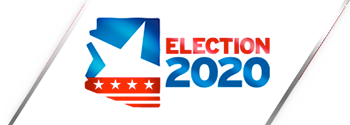
Political affiliation: Republican
Position sought: Arizona corporation commissioner
City of residence: Tucson
Age: Unverified
Career: Appointed to the Corporation Commission in 2019; former president and CEO of the Tucson Hispanic Chamber of Commerce
With the election just days away, Cronkite News is profiling candidates on the Nov. 3 ballot. The five-member Corporation Commission, which was established by the Arizona Constitution, regulates public utilities and decides rate adjustments, assists incorporation of businesses, enforces safety and public service requirements and approves securities matters.
Under the Renewable Energy Standard Tariff, which the commission adopted in 2006, energy companies are required to get 15% of their power from renewable sources by 2025 and charge customers for it through a fee on their bills. Would you change that requirement if elected?
“It’s only a matter of time before the entire nation goes that direction. And it also makes Arizona more competitive with the states surrounding us,” said Peterson, who in a news release in March announced her support for “100% clean energy” by 2050. (“Clean energy” includes nuclear power, which does not produce carbon dioxide; “renewable energy” does not include nuclear.)
Peterson predicted dramatic changes to energy rules in the coming months and said discussions won’t be limited to renewable energy but also touch on such issues as energy efficiency and battery storage.
What would factor into your decision to grant or deny a rate hike for a utility company?
“For me, it’s really a balance between ensuring that a company has made an appropriate capital investment, that we’ve got reliable services and the affordability for the ratepayers.”
Financial fallout from the COVID-19 pandemic obviously has had an impact, she said.
“I hear from families all over the state about how challenging things are right now financially; whether they were furloughed, or a small business has suffered or they’re trying to recover. And so there is hypersensitivity to affordability right now.”
That sensitivity is a priority when she considers rate hikes.
Is it appropriate for utility companies to disconnect services in extreme temperatures?
It’s never appropriate.
“We’ve seen health crises. We’ve seen people die of extreme heat.”
However, that doesn’t mean people shouldn’t pay their power bills, she said. Customers should set up a payment plan with the utility or look into utility assistance programs available in each of the state’s counties.
Do you have concerns regarding the security of our election?
Although there has been some controversy about the Postal Service, she points to Arizona’s Permanent Early Voting List as something to alleviate residents’ concerns.
“I just went through a primary election and (it) was successful. And I believe the general election will work just as smoothly.”
What is the greatest issue Arizona residents face? If elected, how would you address it?
Economic recovery after the pandemic and lack of access to high speed internet.
She stressed the importance of having affordable, reliable utilities as well as the availability of utility assistance programs, especially when most are feeling the financial strain.
About a million people in Arizona do not have access to high speed internet, she said, which is a challenge for people working and going to school from home.
“As I talk to you, my children are upstairs, in high school and college, taking classes right from their bedroom. So we are very dependent on high speed internet.”
Programs should be put in place to ensure that low income families “have access to high speed (optic) fiber.”
What other issues are important to you and your campaign?
Peterson noted a “cloud of corruption” over the commission when Gov. Doug Ducey appointed her in May 2019. There was widespread public criticism of the commission following campaign finance scandals.
She said she proudly voted for a commission code of ethics that ensured “we are not taking funding or resources from people who are trying to influence us.” The code, she said, was important for the integrity of the commission.
Peterson is running as a “Clean Elections” candidate, which means she is not taking utility or other special interest money to finance her political campaign.
“I think what’s key in this election is we’ve turned a new leaf at the commission. From my perspective, it’s about integrity,” Peterson said. “It’s about this code of ethics and I’d like to even see it go further in the future.”
What makes you the best candidate to hold this office?
Peterson credits her experiences as a small business owner and her decade-long tenure as CEO of the Tucson Hispanic Chamber of Commerce. That helps her on the commission, which also incorporates businesses in the state.
In addition, she said, not being from the Phoenix area is an advantage.
“As I sit on the commission during these meetings, I can apply my business experience (and) my knowledge of areas outside Maricopa County. I’m the only commissioner not based in Maricopa County. So I’m making sure that I’m really representing the entire state and all the other 14 counties, (as well as) Maricopa County, in the state.”
What is a personal challenge you feel you need to overcome?
Getting up to speed on commission issues was a “steep learning curve” because Peterson doesn’t come from the energy industry. The detail and complexity of the cases were a challenge at first, but after 18 months, she’s comfortable.
“Constituents have seen that I have really weighed in and pushed and encouraged change.”
She also recognizes that COVID-19 has brought new challenges. In early September, she proposed a $50 million customer relief package for customers of Arizona Public Service, the state’s largest electric utility.
“We’re in the middle of a pandemic and it’s time that we might need to look at things in a different way. In this case, customer financial relief needs to be a priority for families.”
Please share a quote or advice that you live by
“Life is choices and consequences.”
The quote, something she often heard from her mother, aids her work on the commission. She’s aware of the power of every choice she makes and every vote she casts.
“I’m just really careful. And, you know, taking some risk where it makes sense to be innovative, but also making sure that I’m not negatively impacting families with any of the decisions.”
Campaign website: voteforlea.com
 Want more on the 2020 elections? Cronkite News, Arizona PBS and Indian Country Today have teamed up to bring you comprehensive election coverage. Click here for more.
Want more on the 2020 elections? Cronkite News, Arizona PBS and Indian Country Today have teamed up to bring you comprehensive election coverage. Click here for more.
